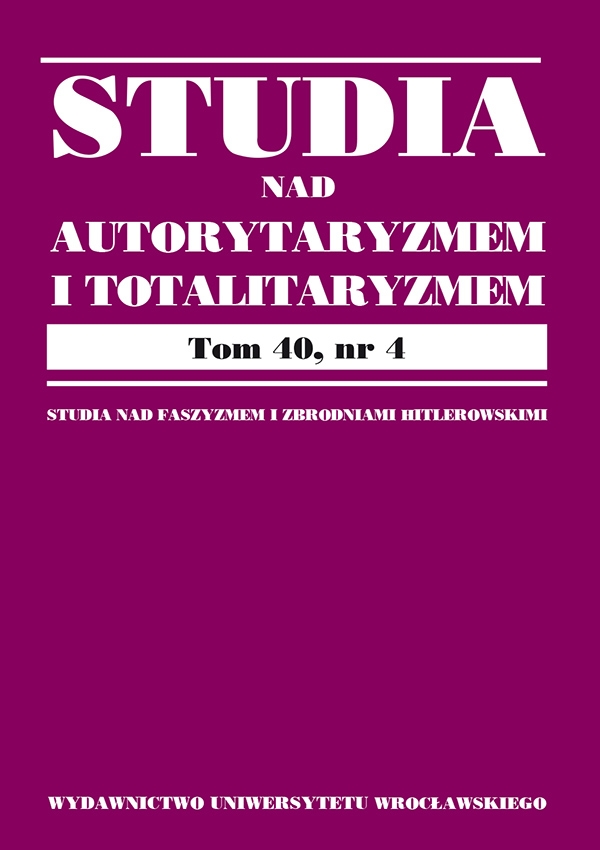

Artykuły recenzyjne

ITALIAN NATIONALISM: BETWEEN NATIONALITARIANISM AND NATIONAL-FASCISM
The subject of this article is the doctrine of Italian nationalism considered using the approach of the Polish italianist Joanna Sondel-Cedarmas. This doctrine found its most complete expression in the activity and journalism of Italian Nationalist Association Associazione Nazionalista Italiana; ANI, of which the main theorists and leaders were Enrico Corradini, Luigi Federzoni, Alfredo Rocco and Francesco Coppola. Although the organization was active relatively briefly, that is, for 13 years from 1910 to 1923, it played a key role in the transitional period between the parliamentary system and the fascist dictatorship. The historical role of ANI consisted in breaking with the nationalitarian ideology dominating in nineteenth-century Italy and related to the Risorgimento Rising Again movement, which was liberal, democratic and anti-clerical. Instead, ANI adopted integral nationalism, connected with right-wing, conservative, monarchist, anti-liberal and authoritarian ideology and favourable to the Catholic religion. However, in contrast to countries like France, Spain, Portugal or Poland, nationalism of this kind failed to retain its autonomous political position and organisational separation, because after World War I it encountered a strong competitor in the anti-liberal camp — fascism, which as a plebeian and revolutionary movement found a broader support base in the pauperised and anarchy-affected society. Nationalists, forced to cooperate with the National Fascist Party after the March on Rome and the coming to power of Benito Mussolini, modified their doctrine in the spirit of the national-fascist ideology. In spite of that, the nationalists active within the fascist system were preventing that system from evolving towards totalitarianism and defended the monarchy, as well as the independence of the Roman-Catholic Church.